New engine, tech and chassis for BMW’s classic roadster, plus new R12 cruiser version
The original BMW R nineT was one of those perhaps-unexpected success stories, in the mould of the Ducati Monster or the Suzuki Bandit.
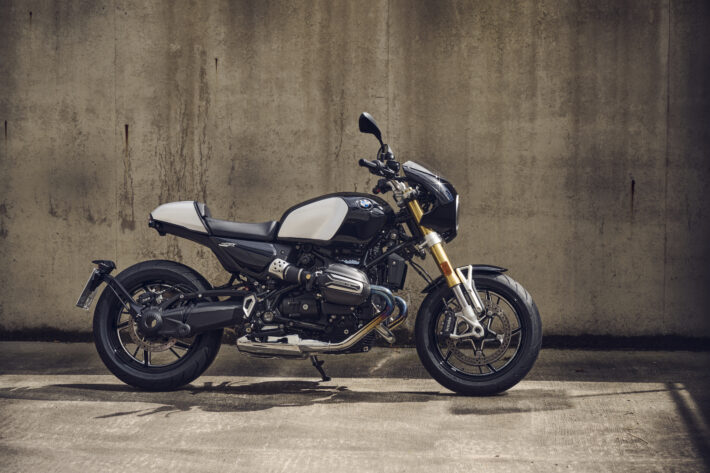
Ten years ago, the Bavarian firm had taken the ‘old’ oil-cooled 1,170cc Boxer engine from the previous generation of 1200 Boxer models, put it into a stylish-but-basic chassis, applied some slick retro styling, and put it on sale.
The clumsily-formatted R nineT name echoed the ground-breaking R90 S of the early 1970s, though that was a hardcore (for the time) superbike rather than a boutique retro-roadster.
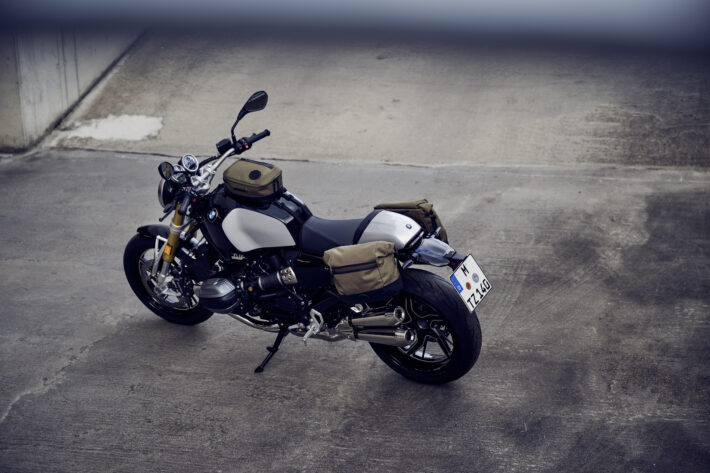
Like the Bandit and Monster though, the new BMW was a really good bike to ride. The engine might have been old, but it was packed with grunt, and perfect for a more relaxed modern classic install.
The chassis had been very well put together, with decent running gear, including premium USD forks and Brembo brakes. It looked right too, with a distinctively ‘BMW’ look that married up the best of the firm’s heritage style with a modern take.
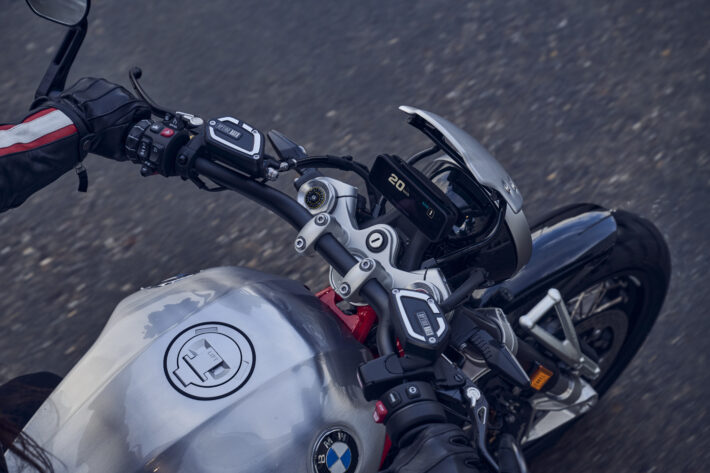
BMW has also made a big thing about customisation – partly to generate a distinct ‘culture’ around the new bike, partly to generate more sales of aftermarket custom parts through dealers. So there was a wide range of bolt-on and factory fit parts, from slick paint jobs and machined alloy parts to wheels, seats, luggage and more.
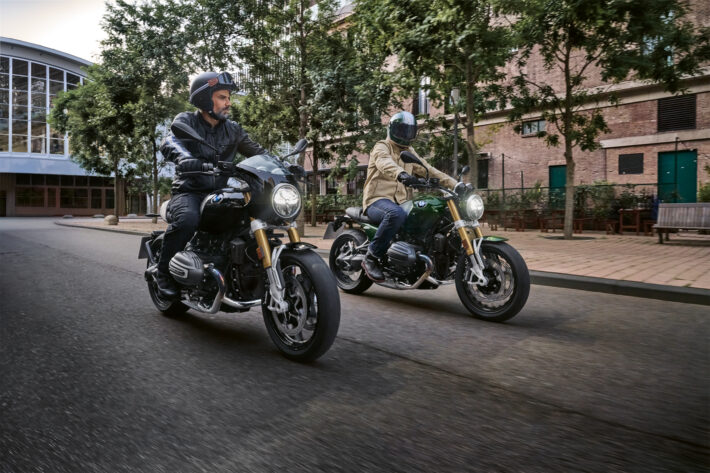
Over the next few years, the R nineT range was extended with several variants, including a budget entry-level Pure, the half-faired Racer, the soft dirt-style Scrambler and a natty Urban G/S with Daker echoes. They all worked well (apart from the Racer which has a rather extreme riding position), and have been a nice little earner for BMW.
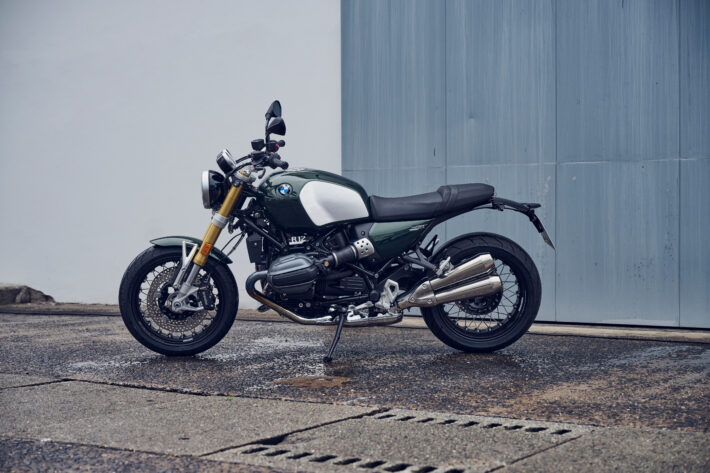
They weren’t perfect though, and the importance of the marque means BMW was keen to bring the R nineT up to date, and for 2024 we get a thoroughly upgraded base machine, that keeps much of the fundamental nature of the bike, but with many of those imperfections addressed, as well as some modest performance improvements.
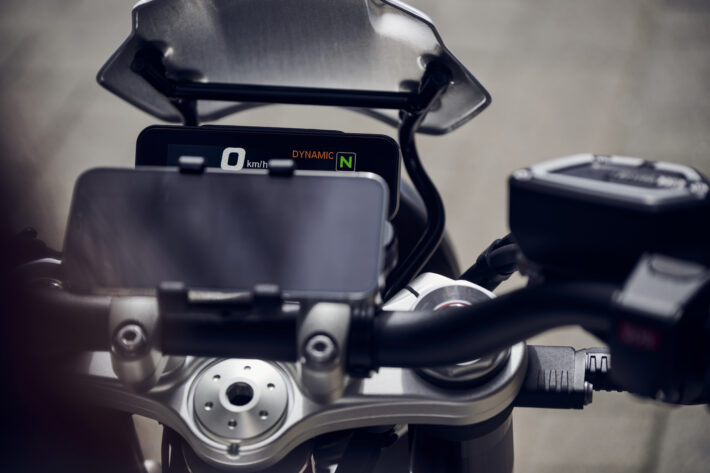
There are two models in this initial release, and they share a new overall range name: the R12. That echoes the R18 model range, and gives BMW another string to its retro bow.
The base R12 is a new cruiser-style machine, with a 95bhp engine tune and 19” front wheel, while the R12 nineT is a more conventional roadster, with 109bhp and 17” wheels. Both bikes share the same new frame: a one-piece steel tube space frame with a bolt-on rear subframe, replacing the old two-part frame.
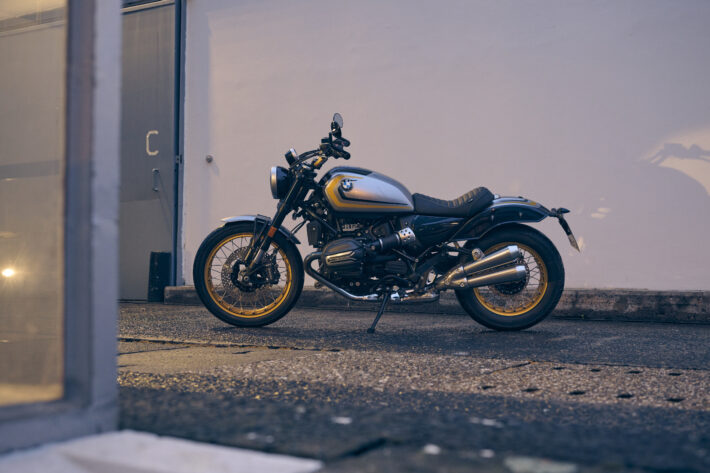
That saves weight and gives a smoother look, while also incorporating a new airbox design. The intake system now sits under the seat rather than being in the slightly bodged tacked-on position under the side panels as before.
The new frame is fitted with fully-adjustable suspension both ends on the R12 nineT – 45mm USD forks and a Paralever rear monoshock system. The R12 cruiser has the same basic setup, but with less adjustability and shorter wheel travel.
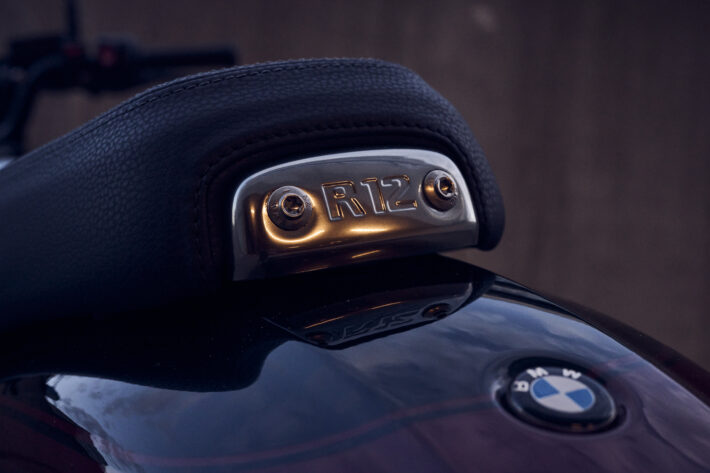
The standard wheels are cast aluminium on both bikes, with a 19” front and 16” rear on the R12 cruiser and 17” wheels both ends on the nineT, which also has sporty 120/70 and 180/55 tyre sizes.
Both models come with premium brakes: dual four-piston radial-mount monobloc calipers up front with 310mm discs, and BMW has also fitted its Motorrad ABS Pro system, which provides a cornering ABS function and integral linked braking.
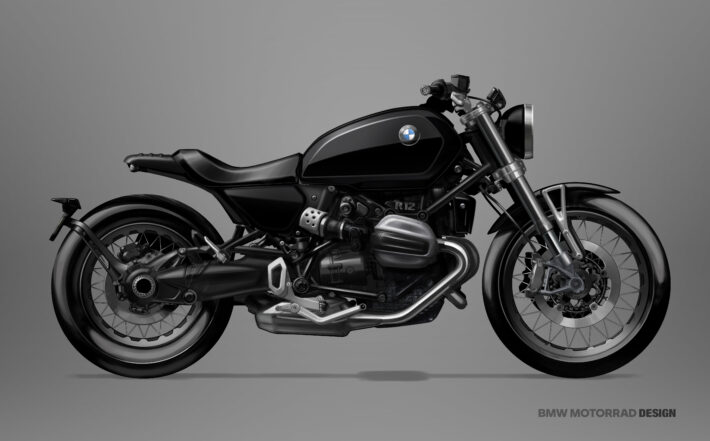
The new R12 range features a new engine – but it looks very like the old one. The capacity is the same – 1,170cc, it has the same ‘horizontal’ intake and exhaust ports, and it stays as an air/oil cooled design with no water cooling radiators.
The top end has been redesigned though, with a new DOHC four-valve head design, based on the 2007 HP2 Sport engine, but with a unique radial-valve setup.
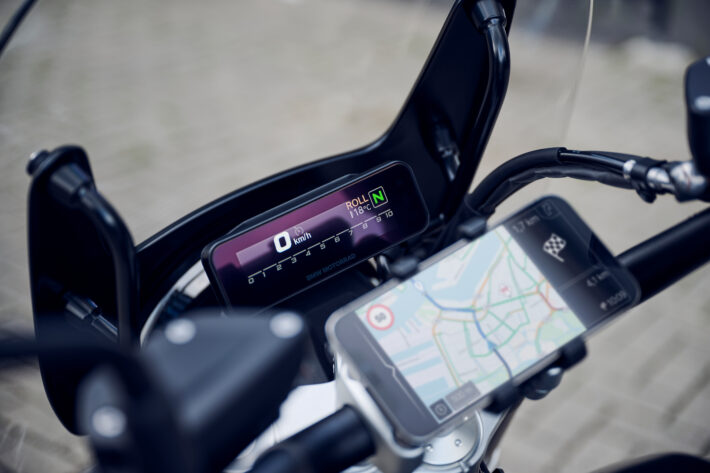
These have hemispherical shims for clearance, and have presumably been used to enhance the combustion chamber design for the clean running needed in 2024, while sticking with the old oil-cooled setup. Power is a decent 109bhp on the nineT and 95bhp on the R12.
One of the biggest issues with the old nineT range was the old-school electronics. Stuff like the instrument panel and riding aids used older tech, and so owners were limited when it came to large colour dashboards with Bluetooth links, and the like.
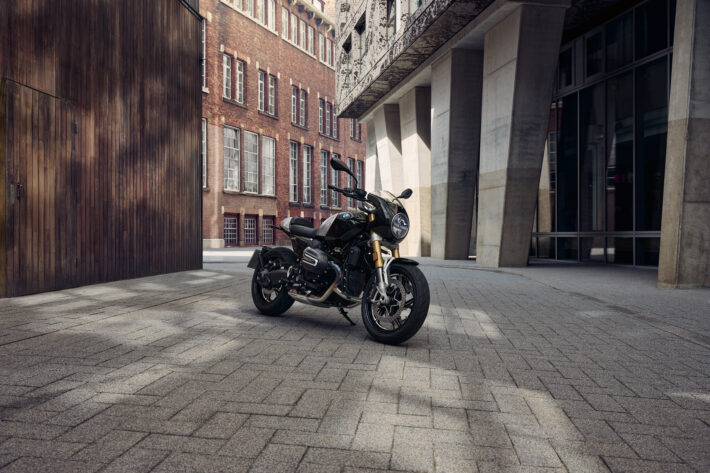
Now though, BMW is offering more advanced LCD displays as an option – though riders can still stick with the old-school round retro dials if they like. Even these have been updated though, with larger LCD displays, and USB-C charging ports.
Other electronic updates include standard keyless ignition, though the fuel cap and steering lock are still manual operation, plus LED lighting all round with optional cornering lighting.
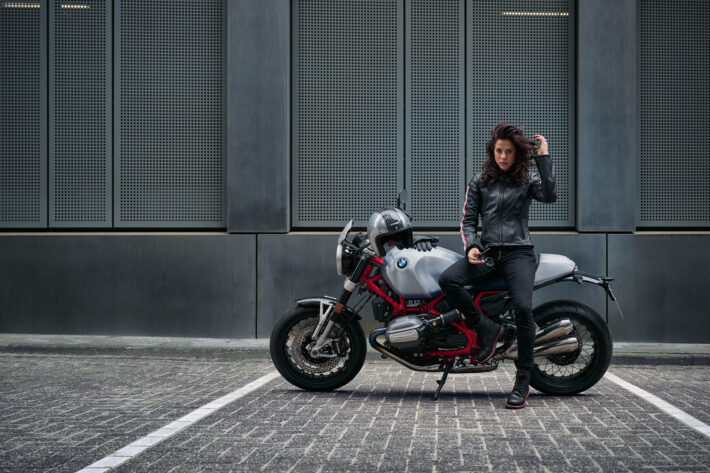
There’s an optional up/down quickshifter fitment, and new riding mode settings: three on the nineT and two on the R12, managing the cornering traction control and engine braking.
A solid update then, and a new BMW cruiser option for those that find the gigantic R18 a little bit too much perhaps. Both bikes have loads of aftermarket bolt-on options for customising already, and we’d expect to see more variants of the new R12 soon, replacing the old line-up of Scrambler, café-racer, retro GS and maybe more.
The new R12 models will be on sale in March 2024, with the R12 nineT costing £14,420 and the R12 £11,990. More info: www.bmw-motorrad.co.uk
BMW R12 nineT and R12 tech highlights
- Classic, purist design as a roadster and cruiser.
- 1,170cc air/oil-cooled twin-cylinder 8v DOHC Boxer engine.
- 227kg kerb weight for the R12, 220kg for the R12 nineT
• Workmanship with great attention to detail.
• Designed for customizing. - R 12 nineT with 80 kW (109 hp) at 7,000 rpm and 115 Nm at 6,500 rpm.
- R 12 with 70 kW (95 hp) at 6,500 rpm and 110 Nm at 6,000 rpm.
- Left-side exhaust system with double silencer and conical end pieces.
- New airbox, now integrated under the seat.
• One-piece tubular spaceframe with bolted-on rear frame. - Fully adjustable upside-down telescopic forks at the front and Paralever swinging arm with rear spring strut now arranged at an angle with revised travel-dependent damping.
- Radially mounted 4-piston monobloc brake callipers, steel flex brake lines and floating 310 mm brake discs.
- Powerful braking system in conjunction with BMW Motorrad ABS Pro for safe braking even when cornering.
- Tailored customization options available through the genuine BMW Motorrad accessories, known for their premium quality.
- Standard riding modes “Rain”, “Road” and “Dynamic” in the R 12 nineT and “Roll” and “Rock” in the R 12.
- DTC (Dynamic Traction Control) and engine drag torque control as standard.
- New classic round instruments as well as USB-C and 12 V socket. Digital display available as optional equipment ex works.
- Powerful LED light units as standard and adaptive Headlight Pro as optional equipment ex works.
- Keyless Ride is standard.
- Three attractive paintwork options for making stylish appearances as Classic Roadster and Classic Cruiser.
- Tailored range of ex works customization optional equipment available through the genuine BMW Motorrad accessories, known for their premium quality.